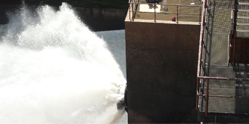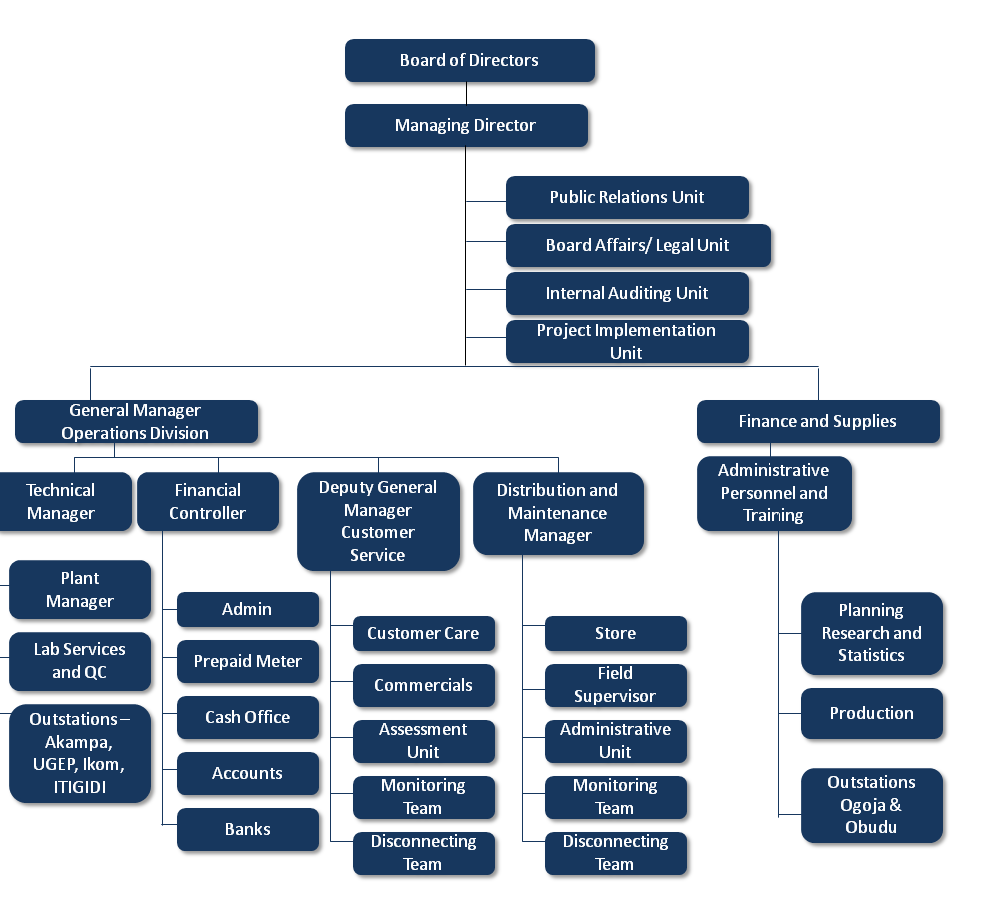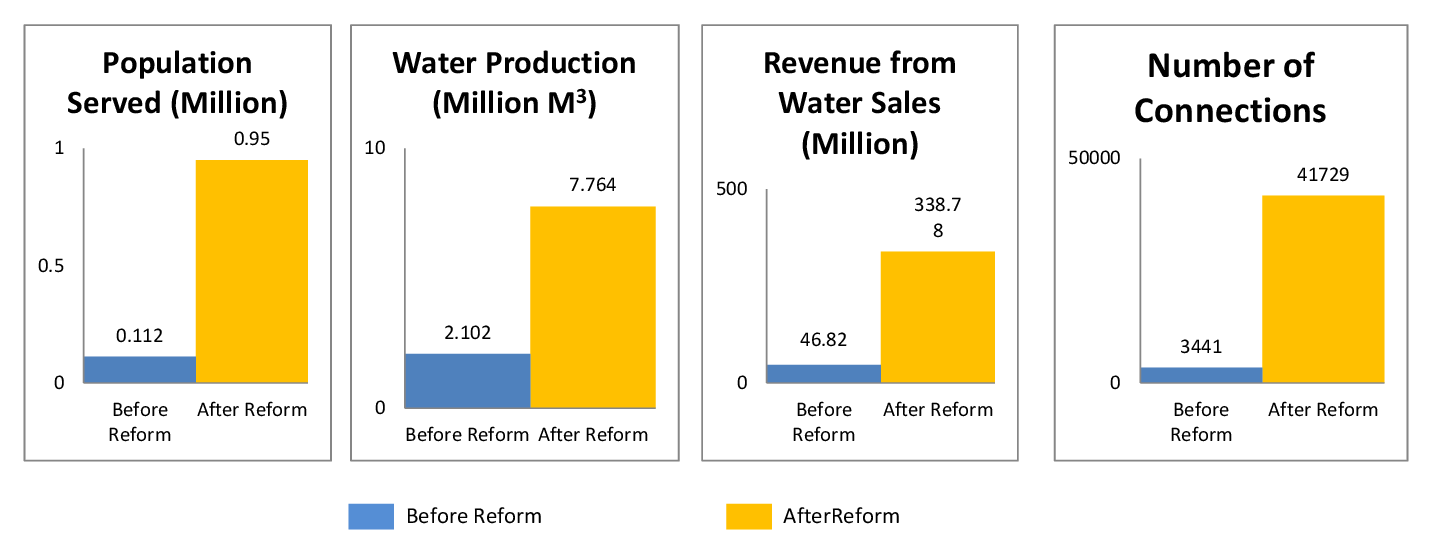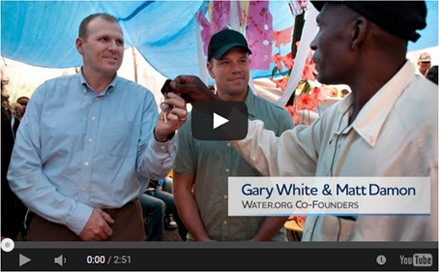
The Cross River State Water Board Ltd (CRSWBL), as it is called today, came into being over 100 years ago. From history, the Calabar water scheme is the oldest water scheme in Nigeria, as Calabar is the first capital of Nigeria. The scheme was constructed before the 1890’s by the colonial masters, followed by the Badagry water scheme Lagos State. The CRSWBL inherited the oldest water supply scheme in the country. The first managers of the oldest water scheme were the Eastern Nigeria Ministry of Works in Enugu. When the South-Eastern state was created, the Ministry of Works, South-eastern State, later Cross River State took over the scheme, and the water board was a small division in the Ministry of Works. The division operated under the Ministry of Works up to 1975 when it was made autonomous and called “Cross River State Water Board”.
It was established at that time with Cross River State Edict No. 13 of 1975. So, ever since, the water board has remained an autonomous water agency operating the old Calabar scheme. The old CALCEMCO in Essien Town, Calabar, is where the old water schemes were located. Cross River State Water Board Ltd is the water utility of the State, responsible for piped water supply services in the entire Cross River State. There are water supply schemes in Ugep-Ediba, Itigidi, Obubra, Ikom, Obudu and Ogoja, commissioned in the early 1960’s by the late Colonel Onogu when he was in power during the Biafran regime. So, those systems have been in operation in their various capacities and have been properly managed up to the late 80’s, when it was realized that the systems were old and demand had increased tremendously due to populations increase. That realization led to the quest for reform for infrastructure rehabilitation and expansion. The organizational structure of the present day CRSWBL is presented in figure below.

The 2nd NUWSRP in Cross River State was commissioned on the 15th November 2005, and the additional financing for Cross River State was commissioned on the 5th December 2013. The total cost of both financial supports from the World Bank is valued at USD154, 377,655. The French Development Agency (AFD) provided a financing loan of USD43, 900,000 in the second NUWSRP to bridge the funding gap in order to achieve the overall objective of the project.
The Objectives of the reform project in Cross River State are similar to those of other States in Nigeria, where the Urban Water Sector Reforms are being implemented. The objectives are:
In order to realise the Project objective, four project components were identified for investment:
The NUWSRP in Cross Rivers State has achieved significant success in the improvement of water supply services to the people of Cross River State, and the repositioning of the CRSWBL for effective and sustainable water supply services delivery. The following sections highlight the key reform activities and outcomes in Cross River State.
Funds were provided for CRSWBL to carry out critical rehabilitation and expansion projects to restore existing infrastructure, towards the improvement of water services to the populace. Funds were also provided for the construction of entirely new water supply infrastructure, with the overall objective of having all water supply systems in the State operating at installed capacity. Support for the purchase of essential vehicles and specialized rolling stock were also included, as well as production and installation of meters to provide vital operational information Key rehabilitation and expansion projects under the NUWSRP include:
| Indicators | Unit | Baseline | Current figure (As at Date) | % change |
| Water production in million M3 | Million m3 | 2.102 | 7.764 | 269.4 |
| Total length of Distribution network rehab./Constructed | Km | 596 | 805.6 | 35 |
| No of connections | No | 3,441 | 41,729 | 1,113 |
| Population served from the systems under rehabilitation. | No X 106 | 0.112 | 0.95 | 748 |
| Efficiency | % Billing | 50% | 59% | 9 |
| % Collection | 66% | 78% | 12 | |
| Total cost of production in =N=million | =N=million | 550.00 | 865.00 | 57 |
| Revenue from Water sales in =N=million. | =N=million | 46.82 | 338.78 | 624 |
| Cash operating ratio | Ratio | 9% | 39 | 333.3% |
 Recorded Increase in Key Indicators at CRSWBL
Recorded Increase in Key Indicators at CRSWBL
In 2003, the concept of Public-Private Partnership (PPP) was reviewed and accepted by the government of Cross River State, and in December 2003, following detailed discussions and negotiations with ORTECH Nigeria Limited, the Cross River State Government signed a tri-partite PPP management contract with ORTECH and the Cross River State Water Board Limited, with the Cross River State Government as Guarantor. The PPP contract became effective in 2004, after the new water supply facility supported by the African Development Bank was Commissioned and ready for use.
The existing PPP management contract with ORTECH was revalidated till August 2012. However as of the time of visit, ORTECH was still managing operations of the CRSWBL, in line with the PPP contract agreement. ORTECH, in ten years of the PPP management contract, has been able to maintain adequate 24 hours a day water supply services to Calabar metropolis.
There is an ongoing procurement activity for the finalisation of the Performance Based and commercial Assistance Assignment which will procure the services of a PPP service provider that will be acceptable to all stakeholders in the State.
The Cross River State Water Sector has a Water Policy in place, which provides information on the water sector policy direction of the State Government. A draft water sector law has been developed by the State water sector actors, and the State Executive Council is reviewing the draft law before onward transmission to the legislatures.
The capacity building programme in the CRSWBL cuts across all departments and grade levels in the utility. The focus of capacity building as part of the reform in the utility is to strengthen the competencies of the utility staff, for effective and sustainable water supply services to the populace. Specifically;
Due to the PPP structure in the CRSWBL, the operations of the utility has been greatly optimized and improved for service delivery. From the organizational structure above, the operations division of the utility is managed by the PPP partner, ORTECH, who’s responsible for the smooth operation of water production, transmission, distribution, metering, billing, and collection.
The PPP partner also manages the customer care unit, which is a 24 hour service, with well trained and equipped staff to meet the demands of the public. The customer care unit also manages the communication component of the utility, to ensure that customers and the general public are well informed of the utility’s activities.
Apart from the development of a water policy for the State, and the draft Water Bill, the reform programme has supported the development of other planning and framework documents for the water sector in Cross River State. Significant among the planning and reform documents produced with the support of the reform programme to date include; Cross River State Water Policy Cross River State Water Board Communication Strategy Communications Action Plan
The CRSWBL has taken full advantage of the NUWSRP in Cross River State to improve its infrastructure assets and operational framework. The use of PPP in the management of operations has been tested in the utility, with successes recorded and lessons learned. The African Development Bank, the World Bank, and the AFD are all key financiers of the reform projects in Cross River State, with each of them focusing on specific projects. The CRSWBL has also restructured its operations and built the capacity of its personnel, through the opportunities provided by the reform programme.

